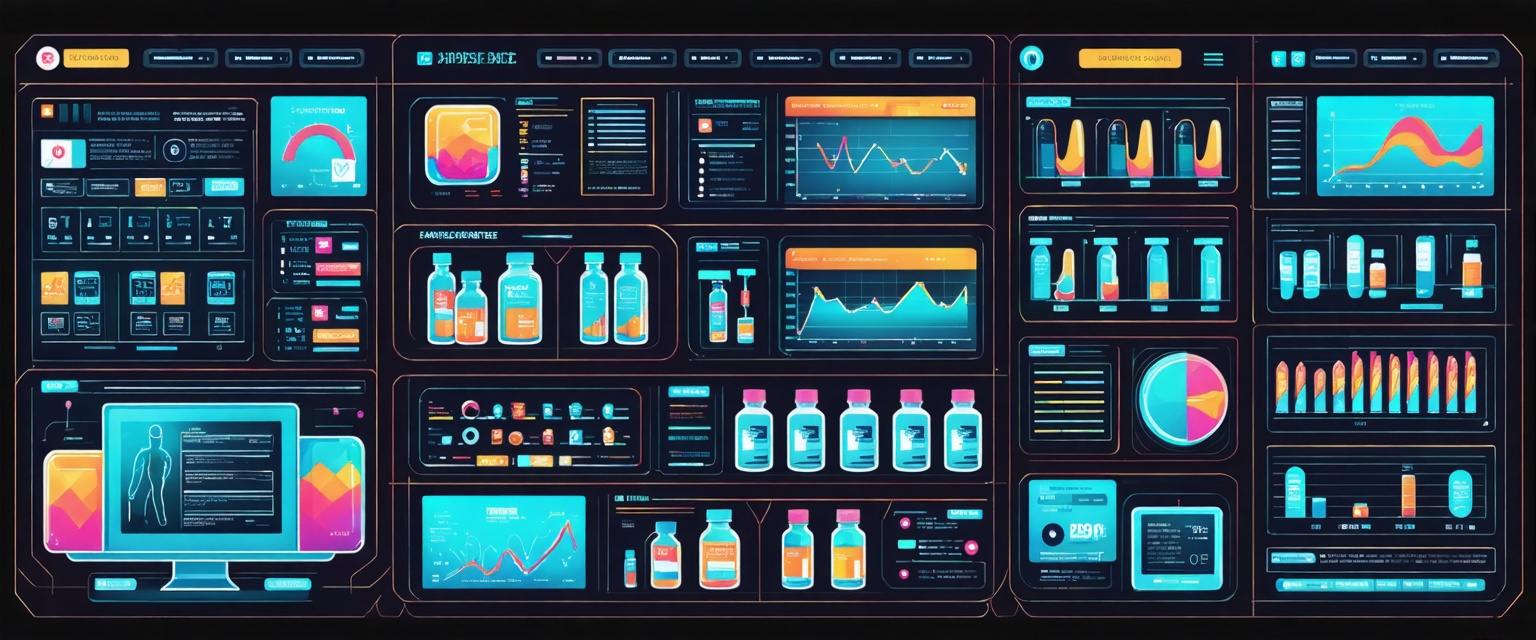Zoning compliance documentation burdens land use specialists with endless paperwork, risking costly errors and project delays. Specialists spend countless hours manually cross-referencing complex regulations while struggling to track code changes across jurisdictions.
Thanks to advancements in Agentic AI, automated data processing now handles these tedious, error-prone tasks with precision, just as it helps automate digitization in other industries. This article covers how AI agents automate zoning compliance documentation and how Datagrid's data connectors can eliminate the manual review process entirely.
What is Zoning Compliance Documentation?
Zoning compliance documentation is the collection, review, and verification of regulatory materials that ensure property development meets local land use laws. This includes zoning maps, ordinances, building codes, permit applications, and legal documents governing land use.
The process extends beyond basic zoning classifications. Land use specialists must consider density limits, building heights, setbacks, environmental overlays, and special permits that affect development feasibility.
Each jurisdiction has unique regulations, creating a complex web of requirements that vary dramatically across locations. Current records are essential because zoning laws constantly evolve.
Municipal codes change, new overlays appear, and regulatory interpretations shift. Outdated information leads to compliance failures even with thorough initial research. This changing regulatory landscape requires systems that adapt quickly.
Why Zoning Compliance Documentation is Essential for Land Use Specialists
As a land use specialist, you're working in a field where compliance failures trigger expensive legal battles, permit rejections, and penalties. Comprehensive records protect you from these costly consequences.
Your professional reputation depends on thorough records that prove due diligence. When disputes arise, detailed documentation provides the transparency needed for successful negotiation. Without proper records, you're exposed to claims of oversight or negligence.
Modern zoning regulations are complex. You navigate overlays, density limits, building heights, setbacks, environmental restrictions, and special permits that differ between jurisdictions. Each requirement needs careful tracking to prevent non-compliance issues that result in fines or demolitions.
Well-organized records speed up project timelines by providing clear compliance evidence to authorities. When you present structured materials addressing all regulatory requirements, you eliminate requests for additional information. This efficiency directly impacts your clients' budgets and success.
Thorough record-keeping lets you manage risks proactively. Detailed zoning analyses, permit applications, and regulatory communications help you spot potential issues early and develop solutions. You become a strategic advisor rather than just a compliance checker by utilizing AI to improve workflow, adding significant value to your services, and strengthening client relationships.
The Hurdles of Manual Zoning Compliance Documentation
Traditional approaches to regulatory compliance create issues that derail project timelines and inflate costs. The complexity of modern regulatory frameworks, combined with outdated manual processes, transforms what should be straightforward work into a time-consuming obstacle course.
Time-Consuming and Labor-Intensive Processes
Manually parsing through dense municipal codes and zoning ordinances consumes countless hours. Without automated policy document processing, each document must be meticulously reviewed to ensure compliance, leading to long work hours and increased labor costs. Implementing AI-driven automation can help streamline these tasks.
High Risk of Human Error
The complexity and volume of regulations increase the likelihood of oversights. Without the ability to automate repetitive tasks, a single missed requirement or misinterpretation can lead to legal disputes, project delays, or costly penalties, severely impacting your reputation and bottom line.
Difficulty Keeping Up with Regulatory Changes
Zoning laws and building codes are continually evolving. Manually tracking these changes across multiple jurisdictions is impractical, resulting in outdated compliance documentation and increased risk of non-compliance.
Inefficient Data Integration
Combining information from various sources, such as GIS data, permit systems, and zoning maps, manually is cumbersome. Without tools to automate document parsing, this inefficiency can result in incomplete analyses and overlooked compliance issues.
Limited Pre-Submission Compliance Checks
Without automated tools, conducting thorough pre-submission checks is challenging. Potential compliance issues may go unnoticed until after submission, causing rejections and project delays.
Manual zoning compliance documentation presents significant challenges that can derail even the most carefully planned development projects. Implementing AI-powered techniques can help overcome these hurdles.
How AI Agents Automate Zoning Compliance Documentation for Land Use Specialists
AI agents transform regulatory compliance for land use specialists through sophisticated automation technologies that eliminate manual problems and reduce human error. These intelligent systems use natural language processing, machine learning, and robotic process automation to streamline every aspect of the compliance workflow.
Automated Regulation Extraction and Summarization
AI system identifies and summarizes relevant regulations, converting dense legal materials into structured, actionable compliance requirements by automating building code compliance. You can quickly understand and apply automating complex analyses to your projects. This application of AI in compliance documentation streamlines the process even further.
Document Template Population
Once regulations are extracted, AI agents automatically generate required documentation, including compliance reports, application checklists, and approval forms. The system populates templates with project-specific information, cross-referencing site plans against zoning requirements to produce accurate, complete submissions that meet municipal standards without manual data entry. This approach ensures consistency and accuracy with AI in all your compliance documentation.
Real-Time Zoning Code Monitoring
Utilizing AI to monitor changes across multiple jurisdictions, these systems update compliance frameworks when zoning ordinances, building codes, or local regulations change. Land use specialists receive instant alerts about regulatory updates that affect their projects, ensuring materials remain current and compliant throughout lengthy approval processes.
Integration with GIS and Permit Systems
AI agents seamlessly connect with Geographic Information Systems and municipal databases through API integrations, importing parcel data, zoning maps, and permit histories. This integration enables comprehensive spatial analysis and real estate site analysis, helping to streamline processes with AI. It allows you to automate property screening by cross-referencing development proposals against existing infrastructure and regulatory overlays.
Pre-Submission Compliance Checks
Before submission, AI performs comprehensive compliance verification using predictive analytics to identify potential approval obstacles. Leveraging compliance automation, the system flags inconsistencies, missing requirements, and likely objections based on historical approval patterns, allowing you to address issues proactively rather than facing costly delays after submission.
Through automating zoning compliance documentation, AI agents empower land use specialists to focus on strategic planning and client service rather than getting bogged down by paperwork.
Datagrid: AI-Powered Document Automation & Compliance for Construction
Datagrid's AI platform transforms documentation chaos by automating time-consuming paperwork management and compliance monitoring tasks.
Comprehensive Processing handles your entire document ecosystem through AI document processing. The platform analyzes thousands of construction files simultaneously, extracting critical information without manual review. This eliminates the traditional file-by-file approach that consumes valuable professional hours while introducing human error, significantly enhancing efficiency in document processing.
Automated Submittal Processing revolutionizes material approvals. AI agents review submittals against project specifications, identifying non-compliant items and tracking approval status across your ecosystem. The system instantly flags discrepancies and maintains real-time approval dashboards for all stakeholders, helping to ensure accuracy with AI and eliminating manual cross-referencing.
Contract Compliance Monitoring ensures nothing falls through the cracks. The platform extracts key obligations, deadlines, and requirements from contracts, creating automated alerts for upcoming deliverables. You receive proactive notifications about critical dates, payment schedules, and milestone requirements before they become problems.
Inspection Management streamlines oversight across multiple projects. Datagrid processes inspection reports, organizing findings, tracking resolution status, and identifying recurring issues. This efficient compliance monitoring helps you address problems before they escalate into costly delays or safety concerns.
Version Control eliminates confusion in construction documentation by helping you automate document management. The system identifies and compares revisions, highlighting substantive changes between versions and ensuring teams work with current information, helping ensure accuracy with AI. Your team never works from outdated plans or specifications again.
Permit and Certificate Tracking provides proactive oversight of regulatory requirements. Datagrid monitors expiration dates for permits, licenses, and certifications, generating alerts for renewals and compliance needs. This prevents work stoppages due to expired permits or missed regulatory deadlines. Additionally, permit application automation streamlines the entire permit process, ensuring timely approvals.
Regulatory Validation ensures your projects meet jurisdiction-specific requirements. The system verifies that project materials align with local building codes, zoning requirements, and safety regulations. This reduces approval delays during critical project phases.
Datagrid's advanced pattern recognition capabilities identify recurring issues and compliance gaps that manual processes miss. Construction teams ensure critical information flows seamlessly between stakeholders, demonstrating the diverse applications of AI in documentation management.
Simplify Construction Tasks with Datagrid's Agentic AI
Don't let data complexity slow down your team. Datagrid's AI-powered platform is designed specifically for teams who want to:
• Automate tedious data tasks.
• Reduce manual processing time.
• Gain actionable insights instantly.
• Improve team productivity.
See how Datagrid can help you increase process efficiency.
Create a free Datagrid account today and transform how you handle construction documentation and compliance workflows.
Discover how AI agents streamline zoning compliance for land use specialists, reducing errors and improving efficiency. Transform your documentation process today!













